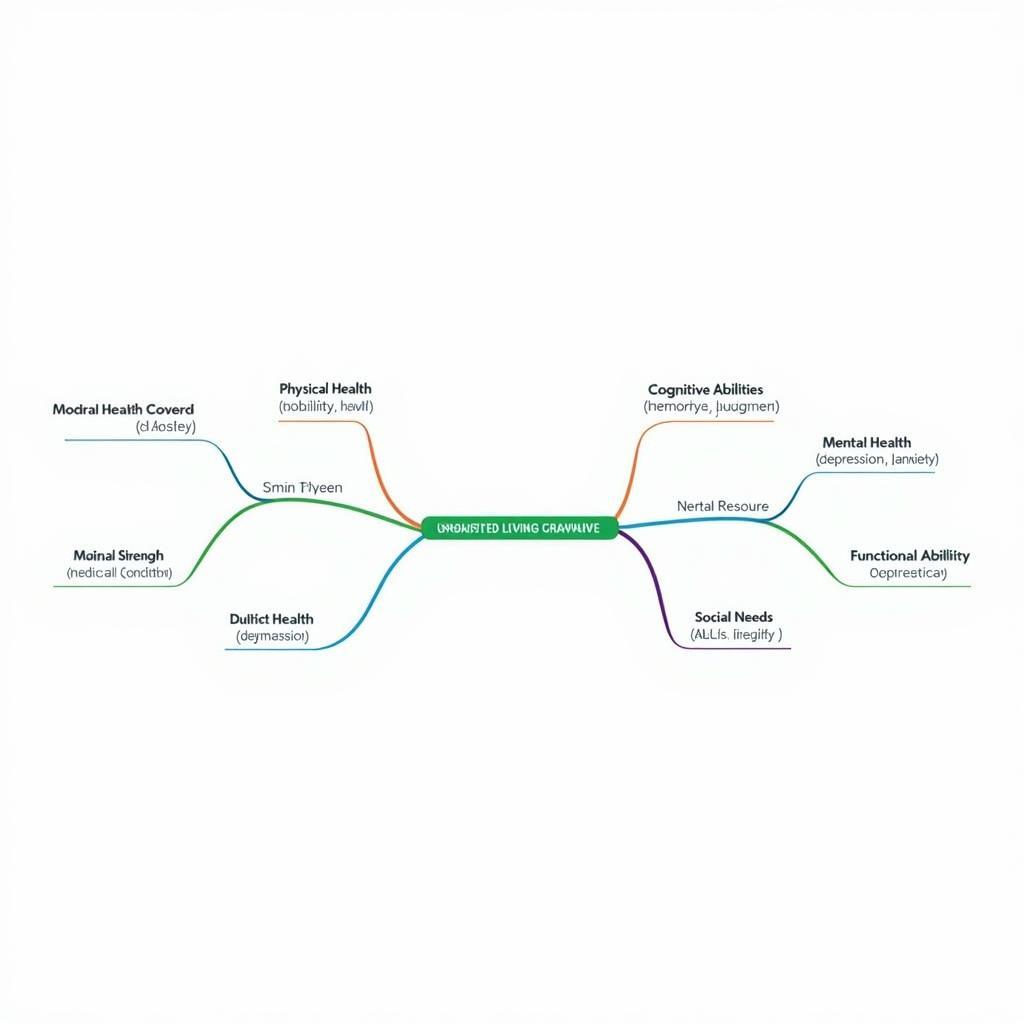Assisted living level of care assessment tools are crucial for determining the appropriate level of care for individuals considering or already residing in assisted living facilities. These tools evaluate an individual’s physical, cognitive, and psychosocial needs to ensure they receive the necessary support and services. Understanding these assessment tools is vital for both families and professionals in the senior care industry.
Understanding the Importance of Assisted Living Level of Care Assessment Tools
Choosing the right level of care is a significant decision, and assessment tools provide a structured and objective approach to this process. They help identify specific needs, allowing for personalized care plans and a smoother transition into assisted living. These tools are designed to assess a wide range of abilities, from basic activities of daily living (ADLs) like bathing and dressing to more complex instrumental activities of daily living (IADLs) like managing medications and finances.
Key Areas Covered by Assessment Tools
A comprehensive assisted living level of care assessment tool typically covers the following areas:
- Physical Health: Evaluating mobility, strength, balance, and any existing medical conditions.
- Cognitive Abilities: Assessing memory, orientation, judgment, and decision-making skills.
- Mental Health: Screening for depression, anxiety, and other mental health concerns.
- Functional Abilities: Determining the individual’s ability to perform ADLs and IADLs.
- Social Needs: Understanding the individual’s social support system and preferences for social interaction.
 Key Areas Covered in Assisted Living Assessments
Key Areas Covered in Assisted Living Assessments
Types of Assisted Living Level of Care Assessment Tools
Various assessment tools are used in assisted living, each with its own strengths and limitations. Some commonly used tools include:
- Functional Assessment Staging Tool (FAST): This tool focuses on the progression of Alzheimer’s disease and other dementias.
- Katz Index of Independence in Activities of Daily Living: This tool assesses an individual’s ability to perform basic ADLs.
- Lawton Instrumental Activities of Daily Living Scale: This tool evaluates an individual’s ability to perform more complex IADLs.
- Minimum Data Set (MDS): A comprehensive assessment used in nursing homes, which can also be adapted for assisted living settings.
How are these tools used?
Trained professionals, such as nurses, social workers, or healthcare administrators, typically administer these assessments. They gather information through interviews, observation, and review of medical records. The results are then used to develop a personalized care plan that addresses the individual’s specific needs.
Benefits of Using Standardized Assessment Tools
Utilizing standardized assessment tools provides numerous benefits, including:
- Objective Evaluation: Provides a more objective and unbiased assessment of needs compared to relying solely on subjective observations.
- Personalized Care Plans: Enables the development of individualized care plans tailored to the specific needs of each resident.
- Improved Communication: Facilitates clear communication between healthcare providers, families, and the resident.
- Tracking Progress: Allows for monitoring of the resident’s progress and adjustment to the assisted living environment.
- Enhanced Quality of Care: Contributes to a higher quality of care by ensuring that residents receive the appropriate level of support.
Choosing the Right Assisted Living Level of Care Assessment Tool
The choice of assessment tool will depend on various factors, including the specific needs of the individual, the setting in which the assessment is being conducted, and the resources available. It’s important to choose a tool that is reliable, valid, and appropriate for the specific population being assessed.
What if I disagree with the assessment results?
It’s important to remember that these assessments are just one piece of the puzzle. If you disagree with the results, you should discuss your concerns with the assessment team and explore options for further evaluation.
Conclusion
Assisted living level of care assessment tools are essential for ensuring that individuals receive the right level of care in assisted living facilities. By providing a structured and objective approach to evaluating needs, these tools contribute to personalized care plans, improved communication, and enhanced quality of care. Understanding these tools is crucial for anyone involved in the decision-making process for assisted living care.
FAQ
- What is the purpose of an assisted living level of care assessment?
- Who typically administers these assessments?
- How long does the assessment process usually take?
- Are these assessments covered by insurance?
- Can I request a reassessment if my needs change?
- What happens after the assessment is completed?
- How can I find a qualified assessor in my area?
For further information and resources on assisted living, please explore other articles on our website.
If you need assistance, contact us via WhatsApp: +1(641)206-8880, Email: [email protected] or visit us at 910 Cedar Lane, Chicago, IL 60605, USA. Our customer support team is available 24/7.

Leave a Reply